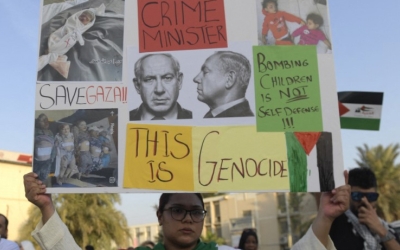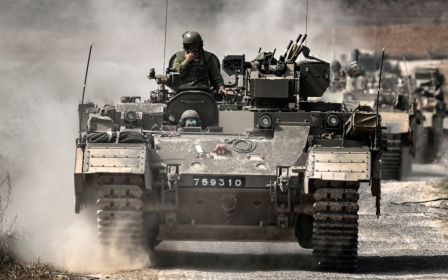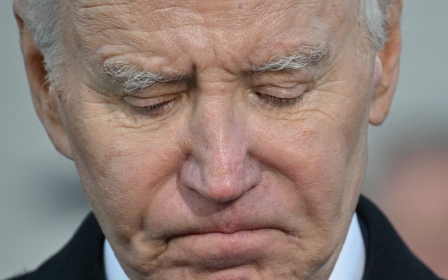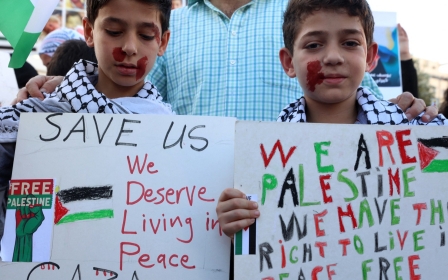Israel-Palestine war: Why Iran doesn't need this war
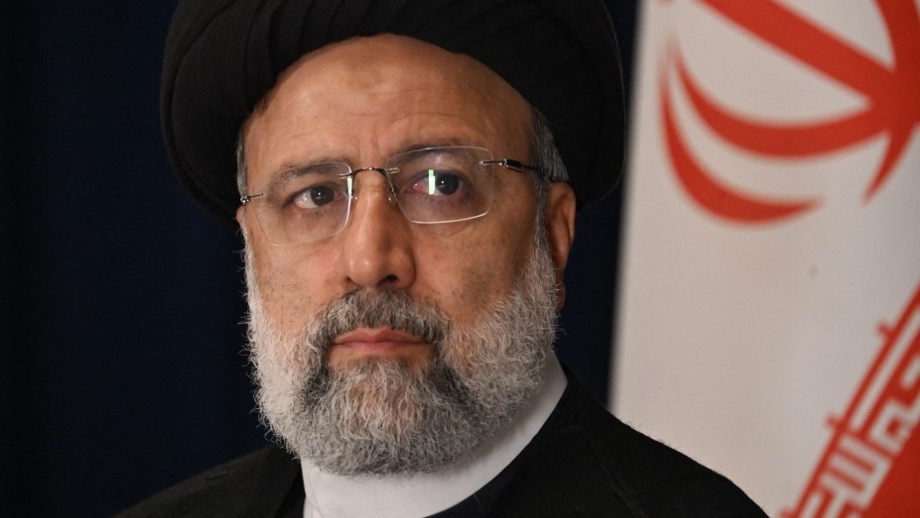
The 1979 Islamic revolution in Iran had two major impacts on the government and the nation: a preference for ideological interests over objective and material interests, and support for Islamic movements, even beyond the Islamic world.
But over the past four decades, there have been several cases in which Tehran has chosen pragmatism over idealism, the most recent being the Gaza conflict.
Nearly a month and a half into the war, Tehran has not directly entered the conflict, nor has its Lebanese ally Hezbollah launched a full-scale war with Israel.
Some western media narratives contend that Iran has abandoned its Palestinian ally. In fact, it seems that Tehran’s goal is to help Hamas end the war and save itself.
The Gaza conflict presents two potential consequences for Tehran, whose plan is to manage both while taking the least amount of damage. The first is the risk of losing Hamas as Iran’s ally in Palestine.
Hezbollah is Iran’s crown jewel, but due to the presence of Hamas inside the occupied Palestinian territories, it is a key player when it comes to containing Tel Aviv.
At the beginning of the war, Iranian Supreme Leader Ali Khamenei denied playing any role in the 7 October attack, but said: “We kiss the hands of those who planned the attack on the Zionist regime.” His words pointed to Iran’s unwillingness to directly enter the Gaza war.
Regional influence
The proxy war has for decades been Iran’s primary tactic to gain regional influence. Iran’s best option with regards to the Gaza conflict would be to rely on an ally, rather than directly confronting Israel and possibly the US.
Iran’s foreign minister, Hossein Amir-Abdollahian, has said that his country does not want the war to spread, but he added: “The region is at a boiling point and any moment it may explode, and this may be unavoidable. If this happens, all sides will lose control.” Armed groups in Lebanon, Yemen, Iraq and Syria could open multiple fronts against Israel, he said.
Follow Middle East Eye's live coverage for the latest on the Israel-Palestine war
Opening additional fronts could aid Tehran by ramping up pressure on Israel and limiting its ability to fight Hamas. At the same time, US bases in Iraq and Syria have been targeted 55 times in the past month, according to the Pentagon. Tehran wants Washington to pay a price for continuing to support Israel.
This risk of regional escalation also gives Tehran leverage over neighbouring Arab states, many of which are involved in ambitious economic development programmes and do not want the war to spread.
Iran has chosen an indirect presence instead of entering the Gaza war militarily. Tehran is trying to ensure the survival of Hamas
In the meantime, Iran has been relying on its diplomacy, with Amir-Abdollahian organising a regional tour to gain support for the Palestinian people. President Ebrahim Raisi has held talks with various regional and global leaders, including a telephone conversation with Saudi Crown Prince Mohammed bin Salman, which marked the first time the two leaders have spoken since the restoration of bilateral ties.
Raisi also attended an emergency summit of Arab and Muslim leaders in Riyadh earlier this month - the first such visit to the kingdom in more than 15 years.
This all comes as global protests swell and pressure grows on Israeli Prime Minister Benjamin Netanyahu to resign. Families and friends of the hostages taken by Hamas recently held a five-day march from Tel Aviv to Jerusalem to protest against the government’s failure to secure their release.
Divided public
The second potential consequence of the Gaza war for Tehran is a deterioration of Iran’s public image and credibility. The message that is now being transmitted to the world is that Iran, as the head of the “axis of resistance”, has abandoned Palestine and Hamas, damaging its credibility among supporters of this axis.
Public opinion in the country is divided into three categories. The first is those who formed the intellectual or executive body of the 2022 protests. This cohort, mostly comprised of young people, has grown tired of revolutionism and does not accept the ideology of the regime. Some believe that Iran values the Palestinian cause more than national interests, sacrificing domestic wealth for Arab ideology.
Opponents of the regime’s position have even protested at displays of the Palestinian flag at sporting events, highlighting the increasing polarisation of Iranian society on this issue.
The second category comprises fundamentalists who believe that Iran has not fulfilled its revolutionary duty to “liberate” Jerusalem. A campaign to recruit Iranians to join Hamas’s fight in Gaza reportedly drew more than three million volunteers.
The third group, supported by the regime, includes moderates who believe that Iran can offer Islamic and national solidarity in support of Palestinians, but should not send troops to join the fight.
Iran, along with China and Russia, is trying to bolster the idea that Washington has not been able to do its duty to stop the war, and is itself a source of instability. This narrative maintains that the US, through its biased support for Israel, is enabling the war, while the “East” is a fresh force for neutral mediation.
Iran has chosen an indirect presence instead of entering the Gaza war militarily. Tehran is trying to ensure the survival of Hamas. But amid fears that it will not be able to control all of its regional proxies, there is still a grave risk that the ongoing conflict could escalate into a broader war across the Middle East.
The views expressed in this article belong to the author and do not necessarily reflect the editorial policy of Middle East Eye.
This article is available in French on Middle East Eye French edition.
Middle East Eye propose une couverture et une analyse indépendantes et incomparables du Moyen-Orient, de l’Afrique du Nord et d’autres régions du monde. Pour en savoir plus sur la reprise de ce contenu et les frais qui s’appliquent, veuillez remplir ce formulaire [en anglais]. Pour en savoir plus sur MEE, cliquez ici [en anglais].



